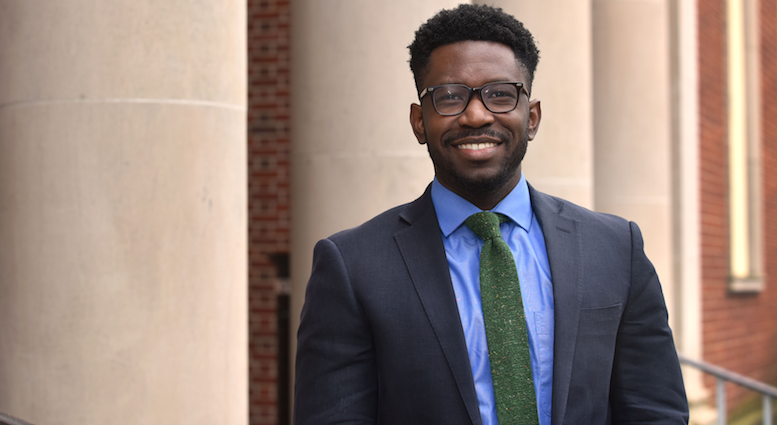“Never forget the good reasons that motivated you to pursue the PhD in the first place.”
Dr. Derron Wallace is a Phi Beta Kappa graduate of Wheaton College (Massachusetts), where he studied sociology and the African diaspora. He recently received his Ph.D. in Sociology of Education at the University of Cambridge, where he was a Marshall and Gates Cambridge Scholar. For his dissertation, Derron was awarded the 2015 Distinguished Dissertation Award from the American Educational Research Association. Here are his five tips for getting your PhD done.
• ME: Thanks in advance for sharing your wisdom, Derron. What was your motivation for pursuing a PhD?
Derron: Anger. I pursued a PhD because of an overwhelming anger, an unyielding frustration with the influence and impact of educational inequality in the Caribbean and its diaspora communities. To my mind, this was a productive form of anger—the generative kind needed for social change.
From my earliest days in Jamaica, I can recall being asked to leave school because my parents had not paid tuition on time (and in one instance, at all). Though but a child, I remember thinking to myself, how can a just nation say to its youth, say to its future leaders, that your participation in public schools is contingent on wealth?
My five-year doctoral study has been a critical and imaginative inquiry into the origin, development and maintenance of educational inequality. I am hopeful that the anger that still animates my questioning will ultimately lead to significant policy and programmatic changes in the field of education.
• ME: What kind of social support helped you get through the hard times?
Derron: To ease my spirit, I avoided stuck-up nerds at all cost. I also threatened to discontinue my friendship with people who wished to talk about research day in and day out. For the health of my spirit, I invested in a network of leaders and bonafide friends who forced me to laugh about Portia’s never-shifting ‘helmet’, Jamaica’s three ministers of finance—each affectionately called ‘one-third’, or any of Ity and Fancy Cat’s antics. I should also add that I left the hallowed halls of Cambridge University every week after classes to live and work in South London. I searched for the company of fun-loving creatives with whom I could cook, play and laugh until my abdomen hurt.
• ME: Which one thing do you wish you had known about the PhD journey when you were applying to various programs?
Derron: You should not pay for a PhD. Accessing significant funding beyond what is needed for tuition and living expenses is extremely important to your development as a researcher and scholar.
The prestige of the university is arguably of value, but I believe the quality of the (financial) support offered can, in some cases, be far more important than going to an Ivy League institution. You will need resources to go to conferences, conduct fieldwork and collaborate on research projects with senior faculty. Make sure you have a strong financial aid package as part of your offer. Otherwise, find another school.
Derron’s Five Tips to Get to PhinisheD
1. Make writing a daily habit. Kiss the days of binge writing goodbye, and commit to writing less more frequently. In the long run, this will enhance the quality of your work.
2. Think of writing, not as a chore, but as an act of self-care. The more you write (well), the brighter your future will be, especially if you choose to become a lecturer or professor.
3. Find a very good supervisor who believes in you. There is nothing worse than working with the proverbial ‘negative Nancy’ who lives to demean you and your work. I got rid of a supervisor who, for some odd reason, believed she ‘owned’ me. Well, I don’t do colonial relationships of any sort and I made that clear to her one day until her cheeks flushed red. I ruined that relationship, but left freed to build so many more.
4. Avoid showing early drafts of your work to people you do not trust. Accessorize your lives with good ride-or-die people who can help you edit your work deftly.
5. Never forget the good reasons that motivated you to pursue the PhD in the first place. Whether it be the discovery of new knowledge, the creation of it, or the change that comes from it, always remember these important goals.
ME: Thank you, Dr. Wallace. Congratulations on being PhinisheD!!!
An experienced community organizer, Dr. Derron Wallace has wide-ranging experiences in educational activism, analysis, policy and research. He has worked with immigrant youth and consulted with local education authorities in London. He has also worked with nomads in Ethiopia, economically disadvantaged rural youth in Jamaica, English language learners in Thailand and gifted students in New York City. In addition to having worked with young people with disabilities in Rwanda, he has served as Special Assistant to the country’s Minister of Education.
Prior to his doctoral studies, Dr. Wallace was also a Fulbright Scholar, Watson Fellow, and Davis Projects for Peace Fellow. You can find him on Twitter.



